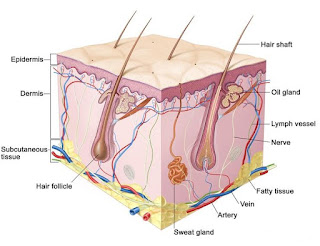The exact causes of eczema are unknown. You might have inherited a tendency
for eczema. You may have a family member who has eczema or who has hay fever
(allergic rhinitis) or asthma. Many doctors think eczema causes are linked to
allergic disease, such as hay fever or asthma. Doctors call this the atopic
triad. Many children with eczema (up to 80%) will develop hay fever and/or
asthma.
Pollen is one of the most common eczema allergens.The specific cause of
eczema remains unknown, but it is believed to develop due to a combination of
hereditary and environmental factors.
Children are more likely to develop eczema if a parent has had it or another
atopic disease. If both parents have an atopic disease, the chances increase
further.
The National Institute of Arthritis and Musculoskeletal and Skin Diseases
(NIAMS) report that approximately half of children who develop atopic dermatitis
go on to develop one of the other atopic diseases.
Environmental factors are also known to bring out the symptoms of eczema.45
These include:
Irritants: soaps, detergents, shampoos, disinfectants, juices from fresh
fruits, meats or vegetables
Allergens: dust mites, pets, pollens, mold, dandruff
Microbes: bacteria such as Staphylococcus aureus, viruses, certain fungi
Hot and cold temperatures: hot weather, high and low humidity, perspiration
from exercise
Foods: dairy products, eggs, nuts and seeds, soy products, wheat
Stress: it is not a cause of eczema but can make symptoms worse
Hormones: women can experience worsening of eczema symptoms at times when
their hormone levels are changing, for example during pregnancy and at certain
points in their menstrual cycle.

No comments:
Post a Comment